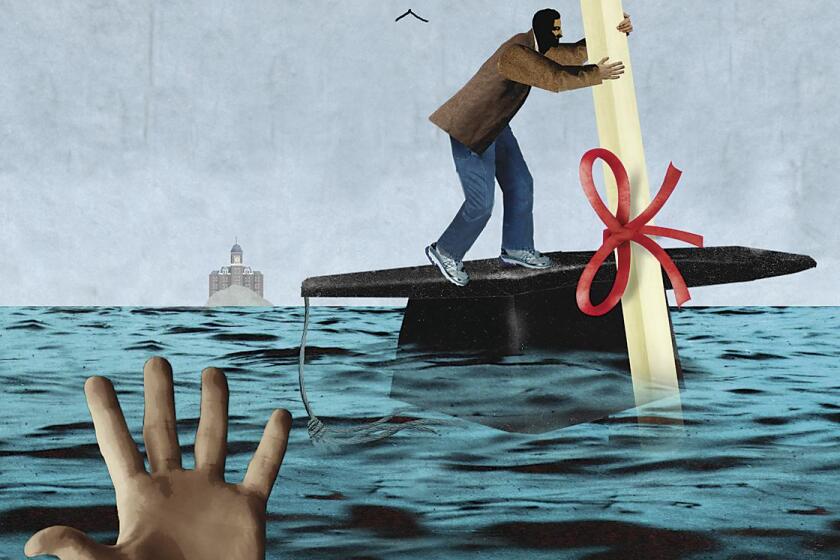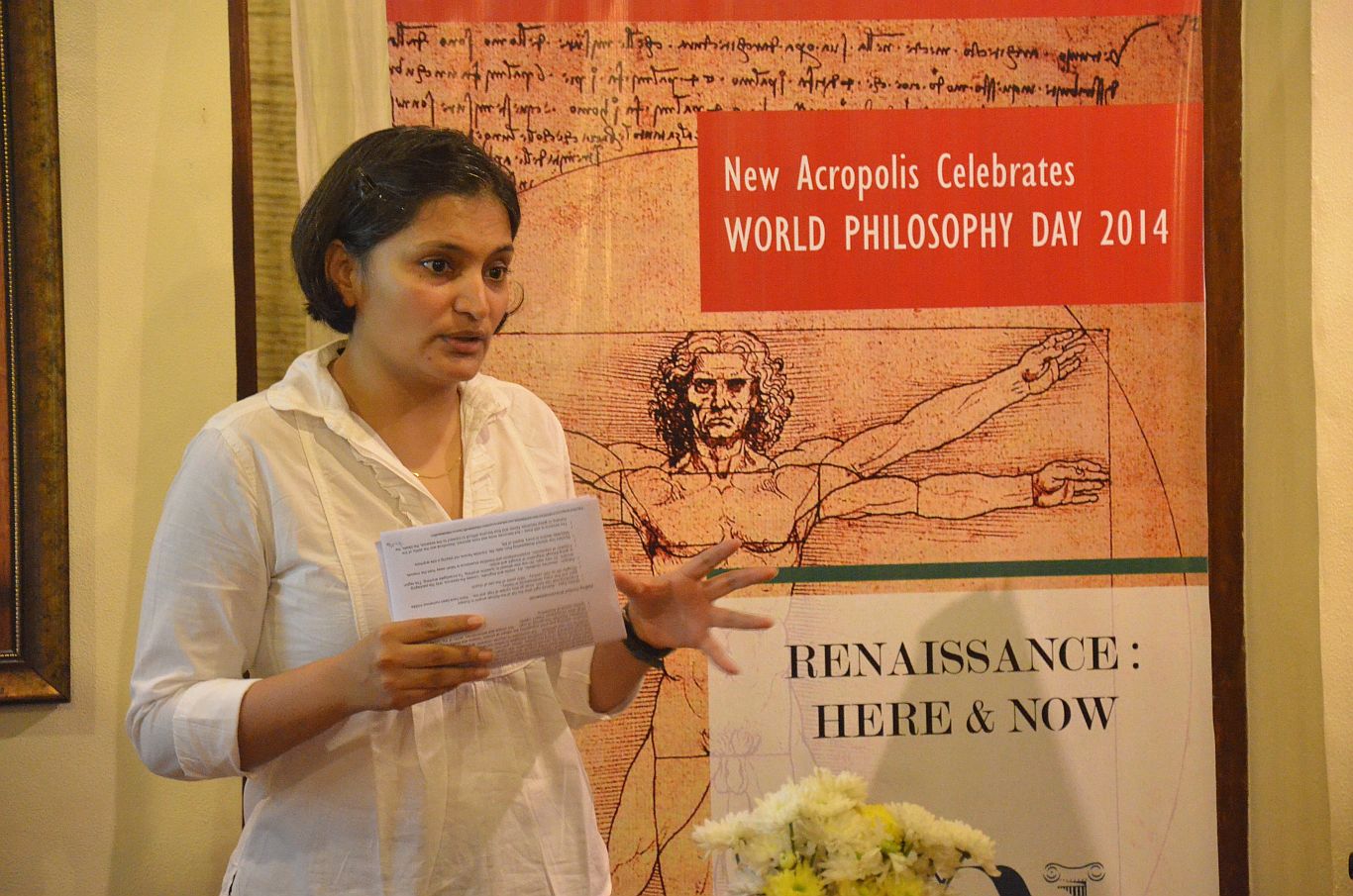credits: UNESCO
"Beyond all of our differences, we are all equal in the exercise of reason – this is the sure way to build fairer, more equitable societies, sustained by the energy of critical thinking."
Irina Bokova, Former Director-General of UNESCO
Today, November 15, is the World Philosophy Day. "World Philosophy Day" is annually observed on the third Thursday of November to honor philosophical reflections around the world.
UNESCO introduced World Philosophy Day in 2002 to honor philosophical reflections throughout the world by opening spaces and encouraging people to share their philosophical heritage, opening their minds to new ideas, and inspire public debate on society’s challenges.
Philosophy has opened the door for new concepts and innovative ideas, laying the foundations of critical thinking, independence and creativity across cultures for many centuries.
The main theme of the 2012 World Philosophy Day which is “Future Generations”.
"What future is in store for those who will be 20 years old in 2062 and what will it mean to be young in the future? Will future young people live in a better world than the one in which today’s youth is living?"
UNESCO introduced World Philosophy Day in 2002 to honor philosophical reflections throughout the world by opening spaces and encouraging people to share their philosophical heritage, opening their minds to new ideas, and inspire public debate on society’s challenges.
Philosophy has opened the door for new concepts and innovative ideas, laying the foundations of critical thinking, independence and creativity across cultures for many centuries.
credits: UNESCO
- Theme 2012: "Future Generations"
The main theme of the 2012 World Philosophy Day which is “Future Generations”.
"What future is in store for those who will be 20 years old in 2062 and what will it mean to be young in the future? Will future young people live in a better world than the one in which today’s youth is living?"
Philosophers have a very important role in shedding light on contemporary challenges, especially when these relate to ethics and justice.
UNESCO believe that critical thinking, foresight, and ethical judgment are invaluable ingredients for a healthy society.
credits: Michael Morgenstern for The Chronicle review
Education:
"The importance of Philosophy, especially for young people, underlining that philosophy is a discipline that encourages critical and independent thought and is capable of working towards a better understanding of the world and promoting tolerance and peace”.
Children of all ages are open to discussing a multitude of problems and questions of philosophical nature which interest them personally. And we all know that young people in the XXI century are well informed and have an opinion about problems that concern them, their family, friends, and country. The Internet, social m
It is a day and/or a week for schools and students to share thoughts openly explore and discuss new ideas and inspire society’s challenges.
"The introduction of children to logical and rational thought not only develops the philosophical spontaneity of children but helps them to become enlightened citizens, capable of formulating their own critical judgment and clear and reflexive views about life from the very early age."
Some thoughts:
I particularly agree with Einstein, that education (and teaching students philosophy from a young age) has two central functions relating to the individual and their society.
- To educate the individual as a free individual – To understand and use critical thinking skills for determining the Truth for themselves.
- To educate the individual as a part of Society – Virtually all our knowledge, our clothes, our food is produced by others in our society, thus we owe Society and have a responsibility to contribute back to Society (that everyone must give as well as take.)
UNESCO will host demonstration lessons of philosophy teaching for children of different ages.
The practice of philosophy with children is based on the recognition of every child as individual who should be respected, listened to and given the possibility to express his or her opinion and thoughts.
"Philosophical workshops for children have become an integral and coherent part of primary school programmes. They permit children to develop their linguistic capacities and vocabulary, to learn to argue, to discuss, to respect and to listen to the opinion of the others. Philosophy practices with children are based on philosophical literature which enriches their personal culture and learns them to interpret literary texts and to understand the challenges they contain."
UNESCO believes that the practice of philosophy in primary schools has been developing over the last two decades and its popularity increases every year.
Unfortunaly, not in all countries. But, I believe that all children will access soon to philosophical activities in the curriculum.
© UNESCO/Isabelle Simon
“It’s you who will come and open these, not us,” Director-General Irina Bokova told an excited group of primary school children from the Paris region, during the “burial” today of the “UNESCO capsule for Future Generations”.
The two metal cylinders are not to be opened before the same date in 2062. They contain some 280 messages received from young people around the world, many of them expressing fear and fascination over technological developments, questions on the place of money in societies of the future, food, environmental concerns and values such as peace and equality.
They also contain various objects symbolizing today’s communication tools. These include a mobile telephone, photos, videos and a USB key with a song written and sung by children from the Andre Malraux and Jean Vassal de Crepy-en-Valois schools, two of the five that took part in the event.
I love this activity! How many students and teachers worked on it! What an excitement participating in such legacy!
“Our dialogue with future generations can only be an imaginary one, but this is what gives it such creative and even revolutionary power […] Thinking about future generations allows us to innovate, invent, and sometimes find solutions for the present.”
Irina Bokova, Former Director-General of UNESCO
I can't resist to share with you, educators of the world, this Albert Einstein talk:
"My dear children: I rejoice to see you before me today, happy youth of a sunny and fortunate land. Bear in mind that the wonderful things that you learn in your schools are the work of many generations, produced by enthusiastic effort and infinite labour in every country of the world. All this is put into your hands as your inheritance in order that you may receive it, honour it, and add to it, and one day faithfully hand it on to your children. Thus do we mortals achieve immortality in the permanent things which we create in common. If you always keep that in mind you will find meaning in life and work and acquire the right attitude towards other nations and ages.
Albert Einstein, talking to a group of school children (1934)
G-Souto
15.11.2012
update 20.11.2023
Copyright © 2012G-Souto'sBlog, gsouto-digitalteacher.blogspot.com®
World Philosophy Day & Future Generations by G-Souto is licensed under a Creative Commons Attribution-NonCommercial-NoDerivatives 4.0 International License.
Credits: photos and images
UNESCO | The Chronicle
UNESCO | The Chronicle
References: UNESCO





No comments:
Post a Comment